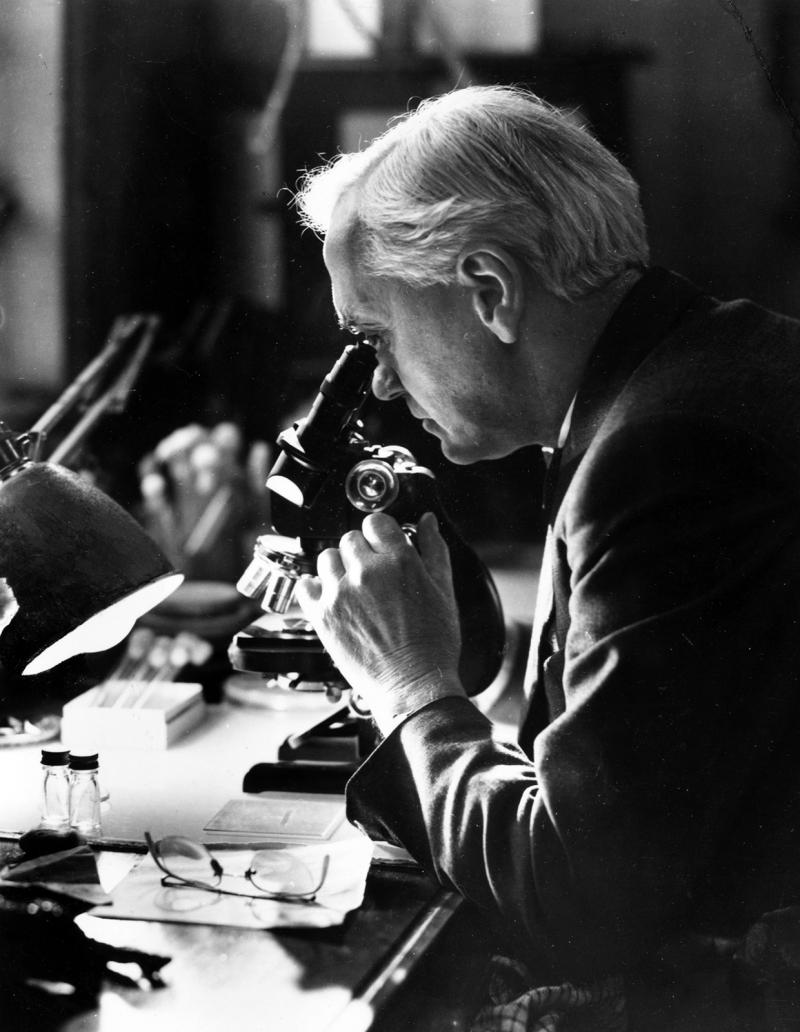
Alexander Fleming was a Scottish biologist and pharmacologist who is best known for his discovery of the antibiotic penicillin. Born in 1881, Fleming grew up on a farm and developed an interest in science at a young age. He studied medicine at St. Mary's Hospital Medical School in London and later served as a medical officer during World War I.
In 1928, while working at St. Mary's Hospital, Fleming made his groundbreaking discovery of penicillin. He noticed that a mold called Penicillium notatum had contaminated one of his bacterial cultures and had killed off the bacteria. This led him to further investigate the mold and its potential as an antibiotic.
Fleming's discovery revolutionized the field of medicine, as penicillin became the first effective treatment for bacterial infections. It saved countless lives during World War II and continues to be used today to treat various infections.
Aside from his work on penicillin, Fleming also made significant contributions to immunology, chemotherapy, and bacteriology. He received numerous awards and honors for his work, including the Nobel Prize in Physiology or Medicine in 1945.
Fleming's legacy continues to inspire scientists and medical professionals around the world.
